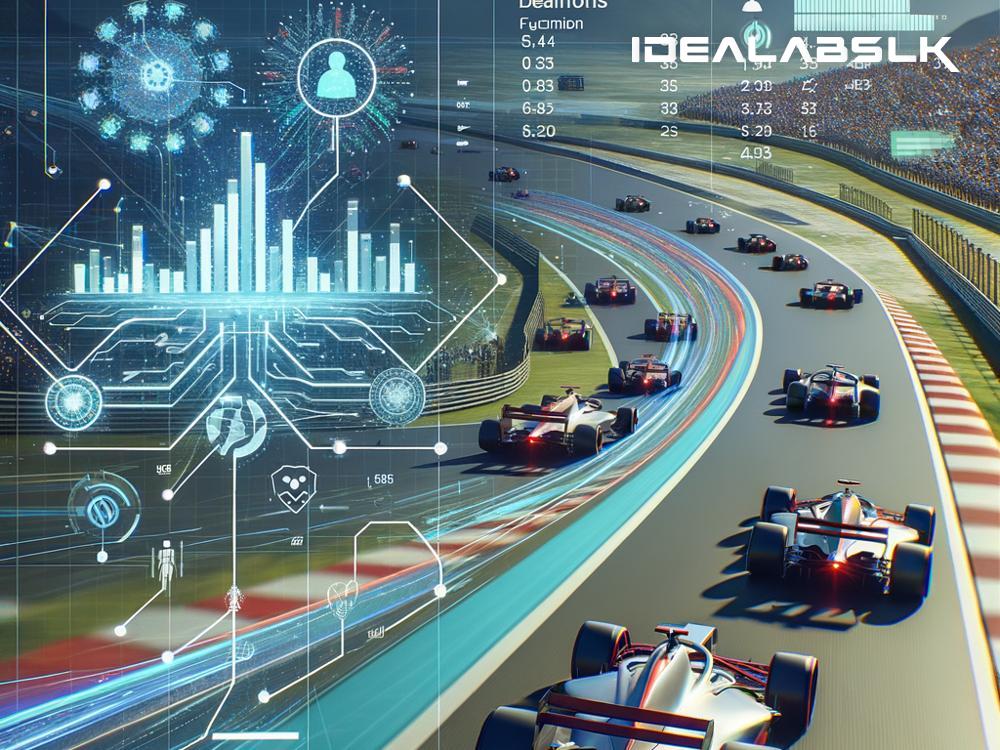AI in Racing Games: How Machine Learning Will Upgrade the Experience in 2024
For years, racing games have been a thrilling way for us to simulate high-speed competition from the comfort of our homes. But, no matter how realistic the graphics have gotten or how intricate the tracks have become, there's always been something a bit off about the experience: the AI opponents and the track designs. These elements, while enjoyable, often lack the unpredictability and adaptiveness of human competition. However, it's 2024, and the landscape is dramatically changing, thanks to machine learning.
The Transformation of AI Opponents
Let's start with AI opponents. Traditionally, racing game AIs have been programmed with a set of rules that dictate their behavior. These AIs follow the racing line as closely as possible, brake at predetermined points, and react to the player in somewhat predictable ways. While this can provide a challenge, it doesn't truly mimic the nuances of racing against human opponents who can make mistakes, take risks, or employ strategies on the fly.
Enter machine learning, a branch of artificial intelligence where machines learn and adapt from experience without being explicitly programmed. In racing games of 2024, machine learning is transforming AI opponents from rule-following robots into dynamic, learning entities that evolve as you play.
Imagine racing against an AI that learns from your driving style. If you tend to cut corners aggressively, the AI learns to anticipate this move and counter it, perhaps by blocking your path or adjusting its own trajectory. If you're a cautious player, the AI might take more risks, trying to unnerve you and force a mistake. This level of adaptiveness creates a far more engaging and personal rivalry, mimicking the unpredictability of racing against real humans.
Enhancing Track Design with Machine Learning
The impact of machine learning doesn't stop with AI opponents; it also revolutionizes track design. In the past, tracks were meticulously crafted by designers, a process that, while creative, could become formulaic. Tracks often had a 'correct' path, and once players mastered it, the challenge and excitement could wane.
Machine learning is shaking up this paradigm by aiding in the creation of dynamic and evolving tracks. Imagine tracks that adapt based on your performance, ensuring that no two races feel the same. For example, if you're dominating on straight paths, the game might introduce more curves in subsequent races or adjust weather conditions to challenge your dominance.
Furthermore, machine learning can generate entirely new tracks based on countless variables, including player behavior, popular trends within the gaming community, and even real-world racing data. This means the game could surprise you with fresh challenges long after its initial release, keeping the experience exciting and unpredictable.
The Future is Now
The introduction of machine learning into racing games is akin to opening Pandora's box – in a good way. The technology is here, and it's transforming the gaming experience in ways we've only begun to explore.
This evolution isn't just about enhancing realism; it's about making games more personal, engaging, and endlessly varied. As machine learning technology continues to improve, the line between virtual and reality will blur, offering gamers experiences that were once thought impossible.
The prospect of racing against AI that learns and adapts to your every move, on tracks that evolve with your skills, is thrilling. It promises a future where the challenge never fades, where every race feels unique, and where the AI rivals push you to your limits, just like real human opponents would.
In 2024, as we stand on the brink of this new era in racing games, it's exciting to think about where machine learning will take us next. The potential is vast, the possibilities endless, and for racing game enthusiasts, the future has never looked brighter.
Conclusion
Machine learning is not just a buzzword in the gaming industry anymore; it's the key to unlocking levels of realism and engagement we've never seen before in racing games. By transforming AI opponents into adaptable, learning competitors and revolutionizing track design to offer dynamic challenges, machine learning is setting the stage for a revolution in the genre. The race tracks of 2024 are just the beginning, and I, for one, can't wait to see where this road will take us. Happy racing, everyone – the future is incredibly exciting!

